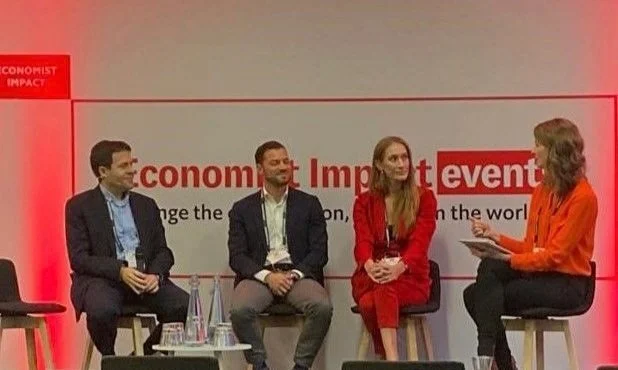Reflections on the Economist GC Summit 2022
Mixed feelings reflecting on the Economist GC Summit this week. The range and caliber of General Counsel representation was fantastic and the level of engagement high, but the level at which that engagement was pitched was patchy.
How in 2022, with all that is happening in the world and the world of business, are we still talking - as in a decade+ after we started this obsession - about whether and how GCs and in-house legal teams bring value to organisations? Is this not blindingly obvious and known to our core? And if not, why is that - what are we cow-towing to that has us not embodying and moving beyond it?
One senior barrister I spoke to expressed appal at listening as an outsider to the reductionism - reducing the debate to analytics and small-ness and self, instead of starting with the why of business and innovative pathfinding to achieve that with integrity - acknowledging the stakes are so high. This is an important mirror up to our narrative as a sector and how easy it is to get distracted or over-emphasised on the low level stuff, however useful that may seem. As discussed with one GC, perhaps it would help at these events to consider what boards, stakeholders and end customers would feel if they could hear the conversation.
What was fantastic was the iteration the Economist had accommodated into the agenda around risk, ethics and scenario planning, with some great agitation from the floor. These are exactly the topics on which this group’s collective attention can usefully - and must - be put. What is to come and how can we best navigate that. What are we experiencing already that prepares us and what standards can we set and raise together. Where are we getting it so so wrong today and how do we learn from and eradicate that - the Post Office Scandal as the case in point. The great minds and experience in those rooms are critical here.
On the innovation side, it is notable how many of the most compelling speakers are from smaller, more disruptive organisations and who are taking risks on doing things differently - focused on 10x progress. There is much to learn from this. There was also present a palpable slowing down of new-ness - as in products, ideas, processes - but with an increase in sophistication in how we work with and develop what has emerged as the table-stakes baseline of sensible tech and tooling in-house - somewhat allaying frustration at the pace of change.
I particularly appreciated the revenue opportunity presented by Christine Tønsberg Nilsen in terms of licensing out the useful solutions she has built in-house; Janet McCarthy's unapologetic turnaround journey, hiring an amazing legal ops specialist to get the job done; Francesca Porter’s experience using legal data to inform and enrich product development and risk decisions; and the reminder from Bruce Braude of the co-creation opportunity spanning in-house teams, tech providers and legal service providers - aka a common purpose approach to serving business needs. The exposé is always present in these discussions as to how much power in-house budget holders have over their legal service providers and how little of that is currently maximised today.
A big moment in the Innovation Room was the discussion brought forward by Alex Graydon on wellbeing and the damaging behaviours and culture we have slept-walked towards and the leadership needed to move forward from here.
Lawyer leadership required at all levels, essentially. We wont move forward without it.
Thank you to the Economist for having me chair and to the brilliant panelists and audience participants on our two sessions for the enriching conversations
Innovation panelists: Bruce Braude Sam Spivack Christine Tønsberg Nilsen Jeff Langlands Francesca Porter Alex Graydon

